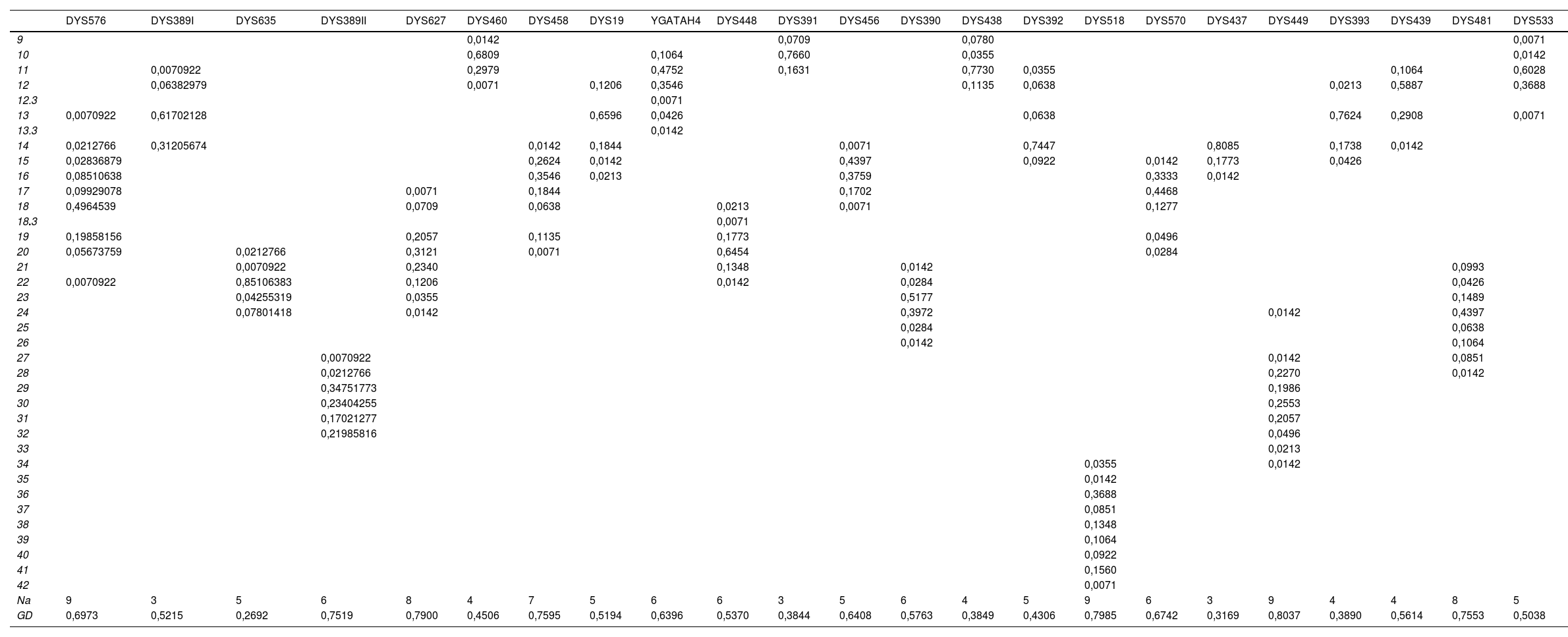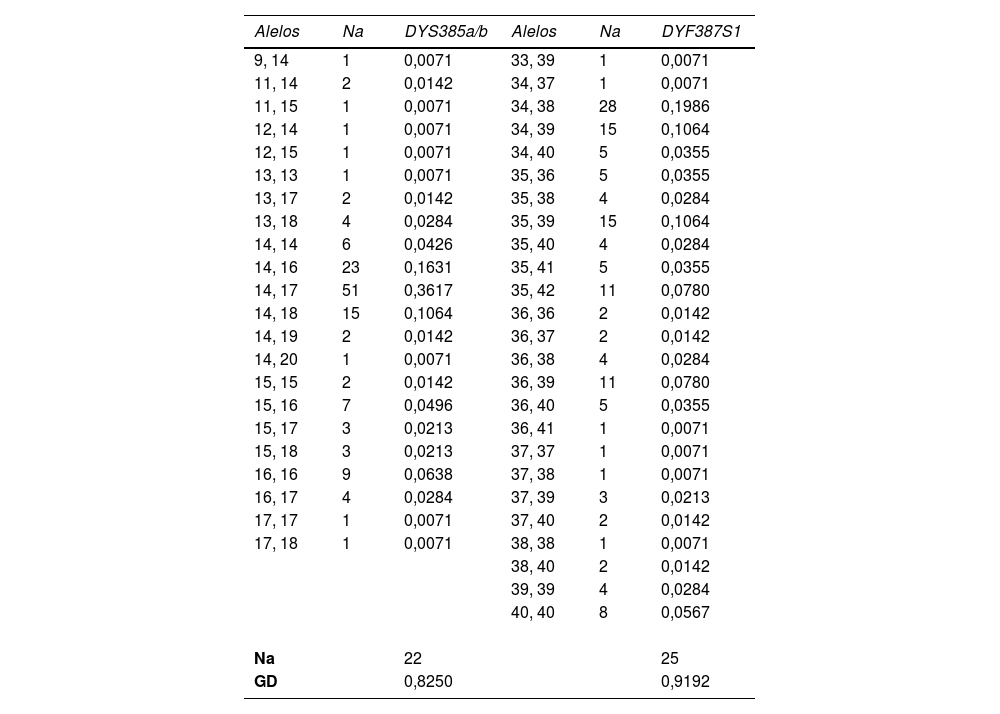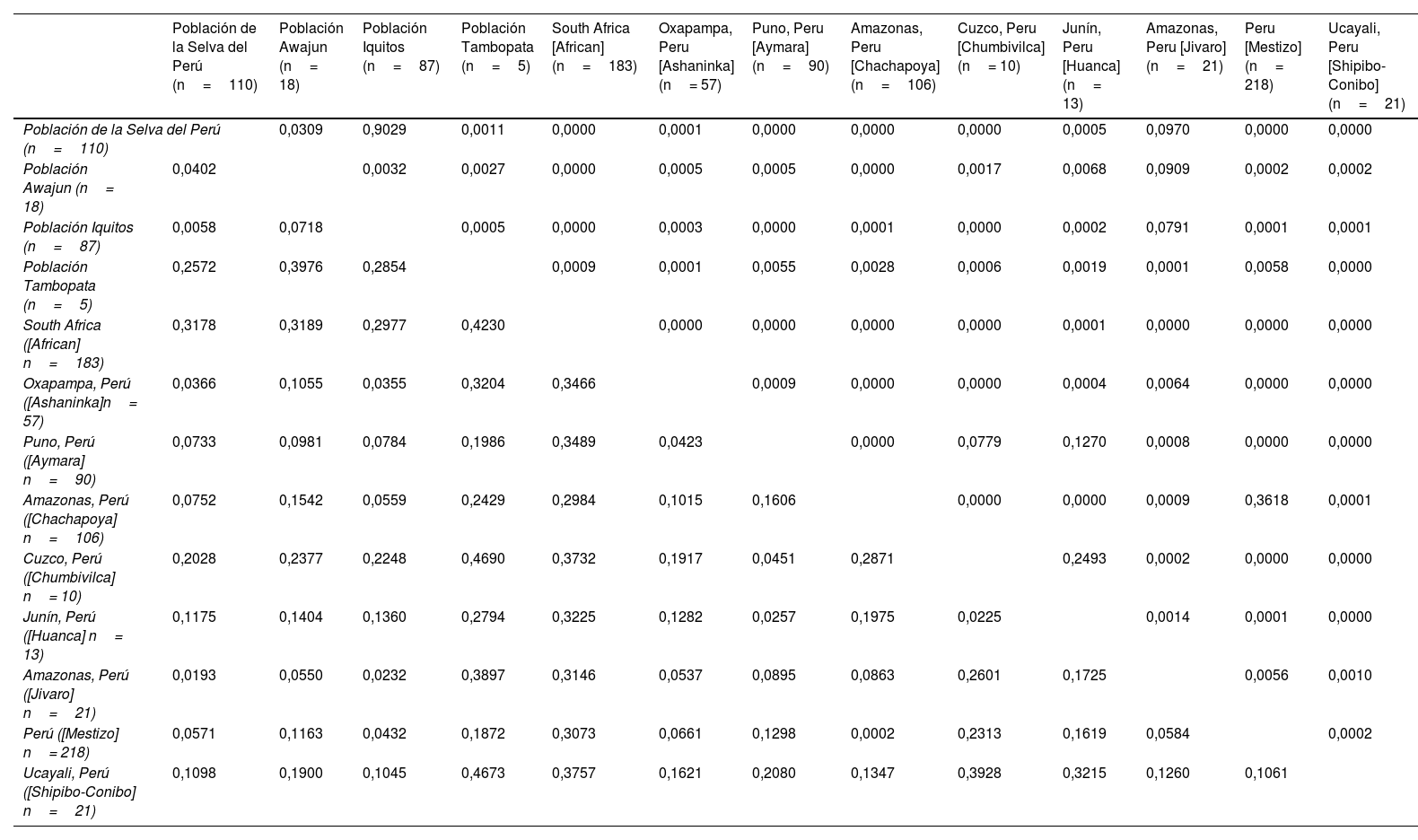Introducción: los marcadores de repeticiones cortas en tándem del cromosoma Y (Y-STR) se ubican en la región no recombinante del cromosoma Y, su herencia es por vía paterna, no son detectables en el ADN femenino. Estas propiedades hacen de los Y-STR una herramienta útil en las investigaciones forenses, como las agresiones sexuales, paternidades y otros delitos violentos; asimismo son útiles en estudios genealógicos y evolutivos. El objetivo de la investigación es ampliar la evidencia científica de la distribución por regiones o país de los haplotipos del cromosoma sexual Y, estudios similares en poblaciones peruanas son escasas debido al número menor de polimorfismos Y-STR de uso frecuente en genética forense y de poblaciones.
Material y métodos: en la investigación se analizaron 141 muestras de ADN de la selva del Perú, de las que 104 muestras corresponden a la región de Iquitos (Loreto), 29 muestras son Awajun (Amazonas) y 8 muestras de Tambopata (Madre de Dios). Las muestras fueron procesadas empleando PCR directa con el kit Yfiler™ Plus PCR Amplification para 27 STR, los productos amplificados fueron analizados por electroforesis capilar en el Applied Biosystem™ 3500XL Genetic Analyzer y los datos obtenidos se importaron al software GeneMapper® ID-X v1.5 para generar los perfiles genéticos. Con los resultados obtenidos se realizó el análisis estadístico y la estructura poblacional.
Resultados: de las 141 muestras se obtuvieron 106 haplotipos únicos. La diversidad genética para cada marcador Y-STR estuvo entre 0,317 y 0,919. La diversidad haplotípica para la muestra total fue de 0,9906. El estudio registra que los haplotipos Y-STR estudiados presentaron elevado polimorfismo en la población analizada y, por lo tanto, son de gran utilidad en estudios forenses de identificación humana, así como en genética de poblaciones cuando se investigan grupos o individuos de América Latina.
Y-chromosome-specific short tandem repeat (Y-STR) markers reside on the non-recombinant portion of the Y chromosome, their inheritance is paternal, they are not detectable in female DNA. These properties make Y-STRs a useful tool in forensic investigations such as sexual assault, parenting, and other violent crimes; likewise they are also useful in genealogical and evolutionary studies. The objective of the research is to expand the scientific evidence of the distribution by region or country of the Y sex chromosome haplotypes. Similar studies in Peruvian populations are scarce due to the smaller number of Y-STR polymorphisms frequently used in Forensic and Population Genetics.
Material and method: In the investigation, 141 DNA samples from the jungle of Peru were analyzed, of which comprised of 104 samples from Iquitos region (Loreto), 29 samples from Awajun (Amazonas) and 8 samples from Tambopata (Madre de Dios). The samples were processed using direct PCR with the Yfiler™ Plus PCR Amplification kit for 27 STRs, the amplified products were analyzed by capillary electrophoresis on the Applied Biosystem™ 3500XL Genetic Analyzer, and the data obtained was imported into the GeneMapper® ID-X v1.5 software to generate the genetic profiles. With the results obtained, the statistical analysis and the population structure were carried out.
Results: Of the 141 samples, 106 unique haplotypes were observed. Gene diversities for each Y-STR marker ranged from 0.317 to 0.919. The haplotype diversity for the total sample was 0.9906. This study supports that the Y-STR haplotypes in this population are highly polymorphic in the analyzed population and, therefore, are very useful in forensic studies of human identification, as well as in population genetics when investigating groups or individuals from Latin America.
Artículo
Comprando el artículo el PDF del mismo podrá ser descargado
Precio 19,34 €
Comprar ahora











